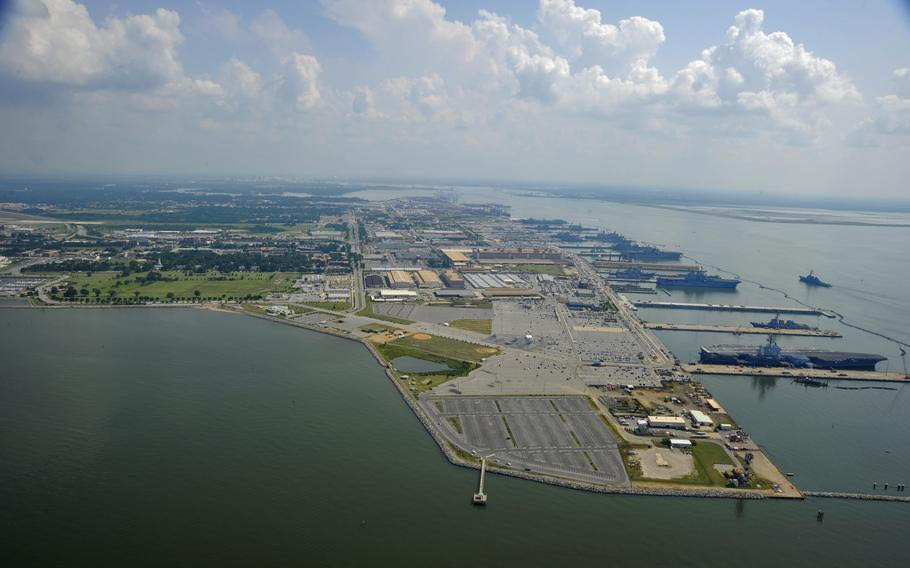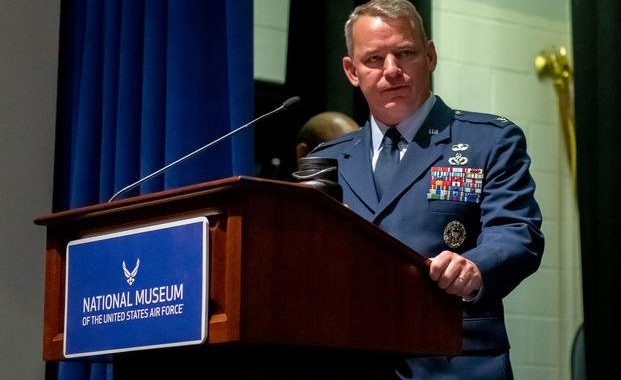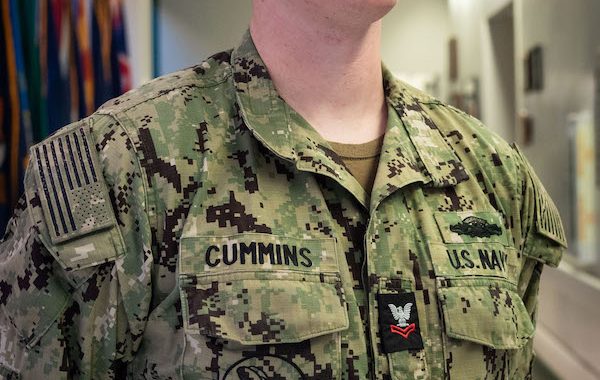Navy officials expediting medical evaluations for sailors amid concerns about mental health care
2 min read
An aerial view of Norfolk Naval Station, the largest naval base in the world.
Top Navy officials said the service is working to expedite medical evaluations for sailors placed on limited duty following a string of suicides at Norfolk’s Mid-Atlantic Regional Maintenance Center.
The remarks came from Secretary of the Navy Carlos Del Toro and Chief of Naval Operations Michael Gilday during a Senate Armed Services Committee hearing last Tuesday as Sen. Tim Kaine pressed the two on service member mental health.
According to Kaine, an issue at the Norfolk’s Mid-Atlantic Regional Maintenance Center, where four sailors on limited duty were assigned at the time of their deaths, was a policy that allowed for a 60% increase in assignment of personnel who were on limited duty or pregnancy/postpartum. This resulted in the need for more in-unit medical resources.
“The first thing that we’re doing is making a faster determination of what path they ought to be on,” Gilday said. “Are they on light duty for a period of two weeks because they have a sprained ankle? Or do we need to move them off the ship on a more permanent basis?”
In accelerating the rate sailors get medical treatment and evaluations, Gilday said the Navy can avoid putting sailors on limited duty.
Sailors may be put on limited duty and temporarily reassigned to a new command for wide-ranging physical, mental or circumstantial conditions, including pregnancy, nearing retirement, recovering from surgery, or even diagnosis with a terminal illness. Exactly how long the temporary assignment lasts depends on how long it takes a sailor to go through the necessary medical evaluations.
To address that issue, Gilday said, the Navy is working to get service members on limited duty those medical evaluations “at a much faster pace.”
And the Navy is reducing the ratio of limited duty sailors at a command “so that we don’t have another MARMC,” Gilday said.
The exchange was in response to another high year of sailor deaths by suicide, which topped out at 70. The count represents roughly an 18% increase from 60 in 2021 and a 7% increase from 2020. The highest tally in recent years was 73 in 2019.
“I hope that over the course of the next several months, we’ll actually have a path forward on how best to execute it. It’s extremely important to bring every tool in the toolkit in order to solve this or try to help solve this very, very tragic situation with regard to not just suicides in the Navy, but suicides in the nation,” Del Toro said.
Resources for service members and veterans struggling with mental health, including 24-hour crisis hotlines:
The Military Crisis Line: call 1-800-273-8255, ext. 1; or text “273Talk” to 839863
Military OneSource: 1-800-342-9647
National Suicide Prevention Lifeline: 988 — call or text





